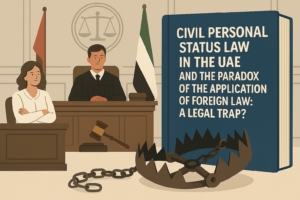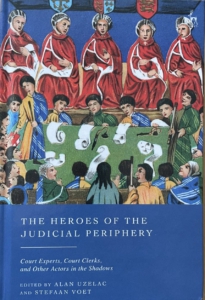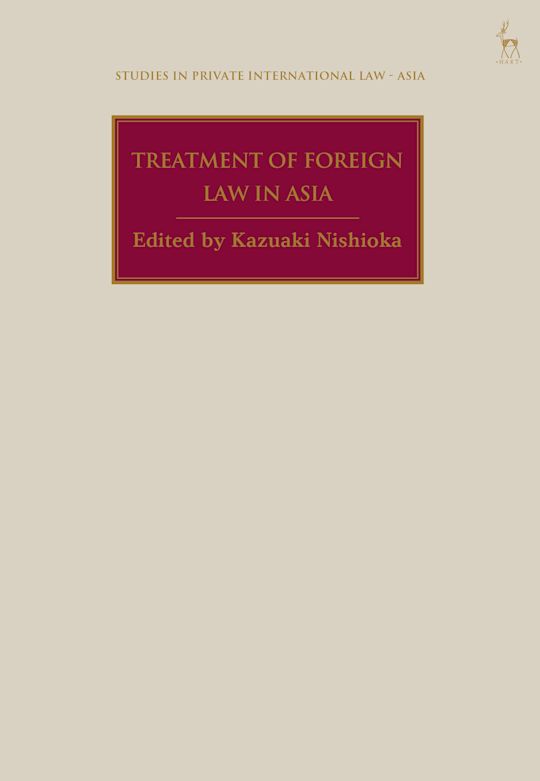By Dr Benjamin Hayward
Way out west, where the rain don’t fall
There’s a treaty for the sale of goods that’s good news for all
But you might not know it’s here
Unless you’re livin’ and a workin’ on the land …
In 2009, Associate Professor Lisa Spagnolo observed – based upon her census of Australia’s CISG case law at that time – that the Convention was effectively ‘in the Australian legal outback’. For those unfamiliar with Australia’s geography, most of its population is concentrated on the continent’s eastern coast. Australia’s outback extends, amongst other places, across much of Western Australia. With that geographic imagery in mind, one might not be surprised to hear that a recent decision of the County Court of Victoria – in Australia’s east – overlooked the Vienna Sales Convention’s application.
The circumstances in which this omission occurred are interesting, and provide a useful opportunity for Australian practitioners to learn more about the CISG’s application in Australia.
The case at issue is last year’s C P Aquaculture (India) Pvt Ltd v Aqua Star Pty Ltd [2023] VCC 2134. That case involved a sale of goods dispute (concerning prawn and shrimp) between Australian and Indian parties. Whilst the CISG has been part of Australian law since 1989, it is a well-known fact that India is not a CISG Contracting State. It is perhaps this well-known fact – taken at face value – that led the County Court of Victoria to overlook the CISG’s application.
The C P Aquaculture judgment indicates that ‘[t]he parties are agreed that the proper law of the contracts between CP (India) and Aqua Star for the sale of shrimp or prawns is Victorian law’. As recorded in the judgment, this followed from the plaintiff’s view that ‘India has not adopted the convention on contracts for the international sale of goods’, and from the defendant’s view that there was a ‘failure on the part of either part[y] to allege and prove the terms of any other law as a proper law’.
On either view, however, there is actually a very good basis for applying the CISG, rather than non-harmonised Victorian law. This case therefore represents an excellent opportunity for Australian lawyers to better understand how and why the CISG applies in Australia.
Taking the plaintiff’s position first, the fact that India has not adopted the CISG is actually not fatal to the Convention’s application. In fact, the Convention specifically provides for its application in those exact circumstances. This follows from Art. 1(1) CISG, the treaty’s key application provision:
This Convention applies to contracts of sale of goods between parties whose places of business are in different States:
(a) when the States are Contracting States; or
(b) when the rules of private international law lead to the application of the law of a Contracting State.
Where – as in C P Aquaculture – it is not the case that both parties are from Contracting States, the CISG cannot apply by virtue of Art. 1(1)(a) CISG. But it can still apply pursuant to Art. 1(1)(b) CISG. The key here is whether ‘the rules of private international law’ call for the application of a Contracting State’s law.
In an informal discussion I once had with a leading Australian barrister, I was asked ‘what does “the rules of private international law” here actually mean?’ It may be that uncertainty over the meaning of this phrase contributes to the CISG’s application being overlooked in cases like C P Aquaculture. In short, private international law rules include choice of law rules (where a sales contract is governed by a CISG State’s law because of a choice of law clause) and conflict of laws rules (where, absent party choice of law, the forum’s rules indicate that a CISG State’s law is to apply). In a way, Art. 1(1)(b) CISG might have been more easily understood by non-specialists if it read ‘when a Contracting State’s law is the governing law’. Although it doesn’t read this way, that is essentially the provision’s effect, and understanding Art. 1(1)(b) CISG accordingly may better help Australian practitioners identify cases requiring the treaty’s application.
Taking the defendant’s position second, where the law of an Australian jurisdiction governs, it is actually not necessary to ‘allege and prove’ the CISG’s terms because the CISG – despite its abstract existence as a treaty – is not foreign law. Roder Zelt-Und Hallenkonstruktionen GmbH v Rosedown Park Pty Ltd – Australia’s first ever case applying the CISG – confirmed this by explaining that the CISG is ‘part of’ Australian law and is thus ‘not to be treated as a foreign law which requires proof as a fact’.
Indeed, the Goods Act 1958 (Vic) – a statute that the defendant itself sought to rely upon in C P Aquaculture – is the very vehicle giving effect to the CISG in Victoria, via its pt IV.
All this being said, C P Aquaculture provides Australian practitioners (and lawyers representing Australian traders’ counterparts) with some useful lessons in understanding how and why the CISG applies. If the CISG really is still in the Australian legal outback, then perhaps what Australian practitioners need is a good understanding of the lay of the land. And to that end, private international law can be their map.
Dr Benjamin Hayward
Associate Professor, Department of Business Law and Taxation, Monash Business School
X (Twitter): @LawGuyPI
International Trade and International Commercial Law research group: @MonashITICL



 The issue of “foreign law” and its application, long considered essential to the functioning of private international law (PIL), continues to trigger interesting discussions and debates.
The issue of “foreign law” and its application, long considered essential to the functioning of private international law (PIL), continues to trigger interesting discussions and debates. 


 On Thursday, January 23, 2025, at 5 pm, the Société de législation comparée will present the Box Set
On Thursday, January 23, 2025, at 5 pm, the Société de législation comparée will present the Box Set 